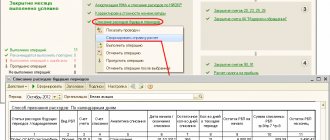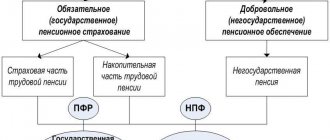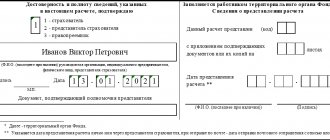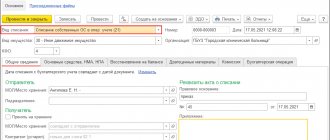The lessee pays for CASCO insurance, not the owner
As follows from the law on leasing, the borrower bears full financial responsibility for the car leased. Therefore, it is he, and not the leasing company, who must draw up the CASCO agreement, even though it is the owner of the vehicle. Moreover, in the event of total loss or theft of the car, the leasing company receives compensation from the insurer as the owner. Otherwise, these costs would have to be fully compensated by the lessee, who is also not relieved of the obligation to repay the debt under the contract early, as well as to pay monthly lease payments if the vehicle needs to be repaired. It is also worth noting that CASCO insurance is necessary throughout the entire duration of the leasing transaction.
The car is listed on the balance sheet of the lessor or the lessee, or even both of them.
Again, depending on the conditions that the bank provides to its clients, the leased object may become the property of the lessee even before the contract between them is terminated. From a practical point of view, this should be convenient, because... in this case, it is the owner who will be responsible for the serviceability of the vehicle, which will protect him from unnecessary disagreements with the credit institution. However, not every bank will be able to make such an offer. In most cases, he retains the leased objects on his balance sheet, thereby remaining their sole owner. The right of ownership also determines a certain number of powers that he can exercise in relations with the tenant (for example, to terminate the contract early and pick up the car just at the moment when it is most inconvenient for you). The legal side of the issue becomes even more “unpredictable” when the car is listed, by mutual agreement of the parties, on the balance sheet of both the credit and credited companies. In our opinion, the bank has the preemptive right of ownership in this case, however, only until the actual users of the car have finally bought it.
Who applies for CASCO insurance when leasing?
Theoretically, the borrower of a vehicle can purchase a CASCO policy on his own, but in this case, to confirm the fact of insurance, the lessor must make a corresponding request to the insurance company. As practice shows, with rare exceptions, CASCO registration is handled by the leasing company itself, which has a pool of trusted insurance partners. Thanks to this, the client, in turn, gets the opportunity to choose a more favorable tariff with a discount of up to 10%. In addition, a long-term partnership between the leasing and insurance companies practically eliminates problems with insurance payments that may arise if you independently purchase a CASCO policy. Thus, if the payer of the insurance premium is a leasing company, the cost of insurance is paid to it by the borrower one-time or is included in regular payments under the leasing transaction.
Leasing on the balance sheet of the lessor, posting
If a property asset is accounted for on the balance sheet of the lessor organization, then the accounting of the receiving party is simplified. In this case, the object must be accounted for in a separate off-balance sheet account 001 “Fixed Assets, Leased”, and at full cost.
For example, when receiving a car on an LD worth 1,750,000 rubles, the debit of account 001 reflects the full value of the property - 1.75 million rubles.
IMPORTANT!
For such OL, depreciation charges are not accrued and are not taken into account.
Option No. 1. An example of a leasing entry on the lessor's balance sheet, if the price of the redemption object is included in the periodic leasing payments.
| Operation | Debit | Credit |
| OL is accounted for in an off-balance sheet account | 001 | |
| Another DL payment has been accrued | 20 | 76 Subaccount “Leasing payments” |
| VAT reflected (input) | 19 | 76/LP |
| Reflects an advance on the cost of the LP, taken into account as part of the periodic payment | 76 Sub-account “Advances issued” | 76/LP |
| Payment made from current account | 76/LP | 51 |
| VAT is accepted for deduction | 68 | 19 |
Option No. 2. We reflect the leasing, transactions with the lessee (on the lessor’s balance sheet), if the purchase price is not included in the periodic payments.
| Operation | Debit | Credit |
| The received object is taken into account on the balance sheet | 001 | |
| Periodic payment for DL has been accrued | 20 | 76/LP |
| Input VAT reflected | 19 | 76/LP |
| Payment made from current account | 76/LP | 51 |
| Value added tax is accepted as a tax deduction | 68 | 19 |
| The purchased object is written off from the off-balance sheet account | 001 | |
| The property was accepted for accounting | 08 | 76/AB - if the value of the property asset was included in lease payments 76/LP - if the purchase price was not included in the periodic payments under the leasing agreement |
The procedure for obtaining CASCO insurance for leasing: a guide to action
Regardless of who the initiator and applicant for insurance is - the leasing company or the client himself - the procedure for applying for CASCO insurance is standard.
1. To contact an insurance company, you must prepare a package of documents. We will talk in detail about what it includes a little later. 2. The insurance company determines the terms of insurance, calculates the cost, terms, risks, and draws up a payment schedule. All these parameters may differ in each individual case and require detailed study by the lessee before concluding an insurance contract.
3. An inspection and assessment of the condition of the vehicle is carried out, based on the results of which the detected damage and the presence of defects are recorded in a special report.
4. The parties sign an insurance contract, and the insurance premium is paid. In this case, the policyholder receives a contract, and the lessor gives a copy of the insurance policy to the recipient of the leased car.
Documents for registration of CASCO insurance for leasing: complete list
The list of documents that are required to be submitted to the insurance company for registration of CASCO insurance when leasing may differ depending on the requirements of each specific insurance company, but as a standard it includes:
- Statement;
- Passport – for individual entrepreneurs and individuals. persons;
- Documents about state registration – for companies and organizations;
- Leasing agreement;
- An agreement that the lessor gives the lessee the right to insure the car (required when the lessee becomes the policyholder);
- Driver's licenses of persons who will be included in the insurance policy;
- A package of documents for the car (PTS, STS);
- Technical inspection report of the leased vehicle;
- Information about the anti-theft system.
How to lease a car?
We gradually approached this issue. Depending on each specific situation, the sequence of actions may differ slightly, but the essence does not change at all:
- An interested person visits a car dealership and chooses a car based on his needs and the needs of the company. At this stage, it is important to approach the choice responsibly, because... It is he who will subsequently determine the favorable outcome of the event. Moreover, making the right choice is also important for the reason that if in the future you remain dissatisfied with the chosen car, then over time you will have to once again spend a certain amount on replacing it. This is especially true if your intentions are to subsequently repurchase the vehicle;
- The selected car becomes the subject of leasing, after which a contract is concluded. Exactly what it will be (from those that we have described) depends on the credit institution;
- Next, car insurance is taken out. It is worth noting that this rule is mandatory in all organizations, because both the bank and the client themselves are equally at risk when the car changes hands. There is one important point here: insurance obligations fall in the vast majority of cases on the shoulders of the recipient of the car. Only in very rare cases can the dealer himself provide such a service at his own expense;
- Once all the documents have been completed, the car is handed over to the client for use. As a rule, at this stage the user signs an additional agreement with the company that he (the client) undertakes to drive the vehicle carefully and undergo regular maintenance;
- A few years later, when the lease agreement expires, the client has the right to return the car, buy it back, or extend the validity period of the document. As a rule, credit institutions are willing to accept this user’s proposal, because in this case, the lessor receives a larger number of payments “with interest”.
CASCO insurance contract: important details
A CASCO insurance contract is a document that provides grounds for payment of compensation upon the occurrence of an insured event, therefore any corrections, errors and inaccuracies should be excluded. To do this, you must carefully check all the data with the original documents, because any mistake can be a reason for refusal of compensation payment. And even if errors are discovered after signing the contract, you need to contact the insurance company and correct them. Every insurance contract contains the following mandatory clauses:
- Insurer details;
- Information about the policyholder;
- Information about the payer of the insurance premium;
- Information about the beneficiary in the event of an insurance event;
- List of persons who receive the right to drive a leased car;
- Information about the car - make, characteristics, color, etc.;
- Maximum amount of insurance compensation;
- Duration of insurance.
Still have questions?
Get advice and a personal quote for purchasing a car on lease
Insurance of vehicles purchased under lease: what you need to know
If you decide to lease a car, we recommend that you go all the way and immediately resolve issues related to vehicle insurance. Please note that:
- Car insurance is a mandatory condition when concluding a leasing agreement;
- Managers of leasing companies are always interested in the safety of the property that belongs to them. Therefore, if an insured event occurs, immediately contact the insurance company and report the traffic accident to the company that financed the purchase of the car;
- The owner of the vehicle is the leasing company, and therefore is also the recipient of the benefits from the insurance company;
- The policy is issued for a long period, from 1 year.
Documents for the lessee: check carefully
The package of documents that is issued to the lessee after concluding the MTPL agreement standardly includes:
- Insurance policy with stamps and signatures of both parties;
- Insurance rules;
- Receipt for payment of insurance payment;
- Inspection report of the leased vehicle.
The lessee should carefully study the CASCO rules, which indicate important information about:
- what relates to the insured event;
- what damage to the car should be compensated under the insurance policy;
- what cases are not insured;
- when and how to contact the insurance company;
- how to receive compensation under CASCO.
Refusal of insurance payment: what to do and how to avoid
Meanwhile, there are cases when the policyholder may be denied compensation payment upon the occurrence of an insured event. The insurance company went bankrupt.
To avoid such a situation, at the stage of choosing an insurer, you should carefully check its financial situation.
The insurer lost its license.
However, as practice shows, this measure is often temporary in nature, and after eliminating the violations that caused the suspension of the license, the insurance company restores insurance activities as soon as possible.
The policy has no legal force, that is, it is a fake.
To prevent such a situation, you should strictly approach the choice of an insurer with a reliable reputation and not be fooled by tempting offers from dubious fly-by-night companies.
The CASCO insurance period has expired.
In the case of car insurance under leasing, this is actually excluded, since the leased property must be under insurance protection throughout the entire period of the financial lease.
The terms of the contract are not observed by the policyholder.
- The policyholder contacted the insurer, violating the required deadlines.
- Information from the policyholder is distorted or not transmitted at all.
- An insurance incident involving a car occurred with a driver who was under the influence of drugs or alcohol.
- The policyholder intentionally damaged the insured property
- The documents provided by the policyholder to obtain comprehensive insurance compensation are not sufficient (incomplete list).
If the insurer refuses compensation, the policyholder has the right to address the claim to the company management, and, if necessary, even go to court. As we see, CASCO insurance is beneficial not only for leasing companies, but also for the borrowers themselves, who, according to the letter of the law, bear full financial responsibility for the safety of vehicles. As a result, lessors, with the help of CASCO, minimize their financial risks, and consumers avoid additional costs for vehicle repairs or compensation in the event of its destruction or theft, which they must pay to the leasing company as the owner.








